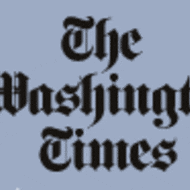August 1, 2008
The Washington Times
by John Hollum
The Washington Times recently published an op-ed by Peter Huessy (“Playing games with U.S. security, Obama’s feel-good approach puts nuclear deterrent at risk”) which mischaracterized Sen. Barack Obama’s position on U.S. nuclear posture. Given that Mr. Huessy also made up a quote and attributed it to me, I appreciate the chance to respond.
I was especially puzzled by Mr. Huessy’s confident assertion that “Barack Obama, too, has called for 600 deployed weapons with 450 Minuteman missiles off-alert.” As a strong supporter of and volunteer adviser to Mr. Obama’s presidential candidacy, I thought I had a pretty good grasp of his positions on national security issues, especially in my field of nonproliferation and arms control, and I simply wasn’t aware of that one.
With good reason. It turns out that Mr. Huessy had Mr. Obama confused with someone else – specifically, New Mexico Gov. Bill Richardson, who had laid out such a position during his presidential campaign.
Many of Mr. Huessy’s other representations about Mr. Obama were similarly deficient in accuracy. I hope readers of The Washington Times will evaluate Mr. Obama based on his actual positions, not on the caricatures of an ill-informed commentator.
The central element of Mr. Obama’s approach to nuclear weapons is his steady focus on the emerging security threat that terrorists, not susceptible to deterrence, will acquire a nuclear weapon. Beginning from his first days in the Senate, he concentrated on bipartisan efforts with Sen. Richard Lugar to lock up loose nuclear materials. In October, he made answering the nuclear terrorism danger a centerpiece of his campaign, and laid out further steps to thwart terrorists’ efforts to acquire the highly enriched uranium and plutonium they could use to build a bomb.
More recently, in a mid-July conference on 21st century threats, Mr. Obama underscored the importance of strategies geared toward the present and the future, not the past. He explained how the misdirected war in Iraq, coupled with the kind of Cold War mind-set Mr. Huessy apparently represents, have left us ill-prepared to confront such real-world perils as nuclear terrorism and biological and cyber attacks.
Again, Mr. Obama offered specific measures to protect us from emerging nuclear dangers, including: 1) securing nuclear materials at vulnerable sites in one-third the time now projected, 2) phasing out the use of bomb-grade materials in civilian power reactors, 3) strengthening policing and interdiction, 4) building non-proliferation capacities worldwide, and 5) convening a summit on nuclear terrorism to further broaden the response.
All the other parts of Mr. Obama’s strategy for nuclear security would support that core objective. One set of proposals would reinforce a strong global legal regime against proliferation – such measures as bolstering International Atomic Energy Agency safeguards and resources, controlling fissile materials and tough, direct diplomacy to bring North Korea and Iran into compliance with their obligations and global standards. Another series of steps would fortify international support for the Nuclear Non-proliferation Treaty by demonstrating that the nuclear weapon states are prepared to fulfill their part of the nonproliferation bargain.
It’s in that context that Mr. Obama has strongly endorsed the bipartisan effort by former Secretaries of State George Shultz and Henry Kissinger, former Secretary of Defense Bill Perry and former Sen. Sam Nunn to work toward a world free of nuclear weapons. That goal, by the way, has more recently also been endorsed by Sen. John McCain.
Toward that end, Mr. Obama would seek, among other things, deep, verifiable reductions in U.S. and Russian nuclear forces and global stockpiles generally. He would also work with Russia to make good on then-Gov. George W. Bush’s unfulfilled 2000 campaign pledge to reduce the dangerous Cold War practice of keeping as many weapons as possible ready to launch on a moment’s notice. And he would work with the Senate to ratify the comprehensive ban on nuclear testing, a treaty upon which Mr. McCain has also said he has an open mind.
But, in aspects of his position often overlooked, Mr. Obama also has stated that “As long as states retain nuclear weapons, the U.S. will maintain a nuclear deterrent that is strong, safe, secure and reliable.” He has made clear that he will do what is necessary to make sure this remains the case.
It is, of course, perfectly respectable to disagree with Mr. Obama’s positions on these issues. But it’s a good idea first to find out what they are.
John Holum, who served as director of the U.S. Arms Control and Disarmament Agency and undersecretary of State for Arms Control and International Security, is a volunteer adviser on arms control and nonproliferation issues for the Obama campaign.
Jonathan Granoff is the President of the Global Security Institute, a representative to United Nations of the World Summits of Nobel Peace Laureates, a former Adjunct Professor of International Law at Widener University School of Law, and Senior Advisor to the Committee on National Security American Bar Association International Law Section.








